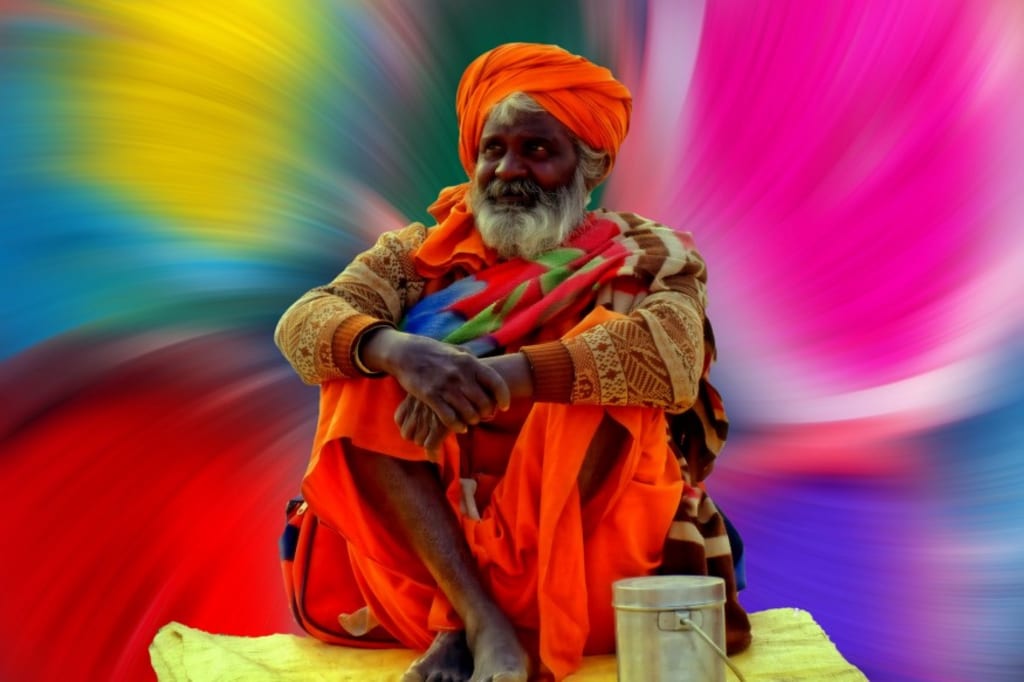Are All the “Enlightened” Spiritual Gurus Just Bullshitting Us?
What if they are selling us an impossible fantasy?

What is enlightenment?
Is it really possible?
And is it the ideal way to be anyway?
What is enlightenment?
There are various definitions. I have previously examined some of the main ones according to experts. I summarised them down into these key attributes:
- Rising above your thoughts and perceiving them as not being you.
- Feeling a sense of well-being, or a connection to your inner calm, in all situations.
- No longer feeling any worry, and feeling more joy and meaning in your life.
- Seeing the truth of reality, even if it doesn’t make you happy.
- Realising you’re not a separate self.
Is enlightenment really possible?
Well, that depends on which definition of enlightenment you are aiming for.
- Realising you’re not a separate self. This isn’t that hard to do if you get into some form of self-inquiry. Do the Headless Way for a while and you’ll probably get there.
- Rising above your thoughts. This isn’t too difficult either. It’s just another bit of psychological trickery that gets easier with practice.
- Feeling a sense of well-being in all situations. In other words, you no longer feel any worries in life. How likely is it that you will get to that point? And if you do, there’s a high chance you will lose it at some point.
- Seeing the truth of reality. Is that possible? None of us can know everything, and we all have a unique perspective. If someone says they are seeing things as they really are, they could be deluded. After all, our perception of reality can easily be skewed.
Are all the “enlightened” gurus bullshitting us?
How can we be sure anybody has become fully enlightened? What if they are only trying to get us to buy their books and attend their expensive events?
Attending one of Eckhart Tolle’s events will set you back between $57 and $227. He does a bunch of those each year. If hundreds of people turn up, that’s a lot of money.
Being “enlightened” can get you rich. All you need to do is convince enough people you’re the real deal.
But what about those who don’t try to make money from their “enlightenment”?
Well, we still don’t know for sure whether they are enlightened. What if they are pretending? How can we tell the difference?
And what if some of them have even fooled themselves?
Is enlightenment the ideal way to be anyway?
Let’s imagine you were somehow able to become enlightened. How compatible would that state be with normal life?
If you feel bliss all the time no matter what happens to you, why bother with anything? You’re not going to feel any better for achieving things. You’re already feeling amazing all the time anyway.
And if enlightenment means realising you’re not a separate self, this might not be compatible with normal life. But it depends on what situation you’re in. If you’re surrounded by loving people who all have your best interests at heart, not much can go wrong.
But what if you’re around people who don’t care about you? They might try to screw you over or manipulate you in some way. How are you going to be able to stand up for yourself if you don’t feel like you’re even a self?
Is enlightenment just detachment from reality?
Emotionally reacting to life events is all part of being a functioning human. If we no longer feel emotions in reaction to life around us, will we stop being able to relate to others?
Susie Kearley gave an example of somebody she did some writing work for. They claimed to be enlightened. But as a result, they didn’t seem to care about the feelings of others. In the end, Susie didn’t get paid for all the work she did.
What use is “enlightenment” if it turns you into an uncaring dickhead?
The paradox of wanting to become enlightened
If somebody wants to be enlightened, they need to let go of all desires — including the desire to be enlightened. But once they become enlightened, they no longer desire enlightenment. So they don’t need it.
Or if we go with another definition of enlightenment — the dropping away of the sense of self. Once you no longer feel like a separate self, who is it that is enlightened? In that sense, nobody can become enlightened, because there is no self there for it to happen to.
But if enlightenment means being fine no matter what happens, it doesn’t matter that enlightenment has happened.
Essentially, enlightenment is a form of death. But like actual death, it’s only a concern for those who are still alive.
If you become enlightened, you will no longer be the “you” you were before you were enlightened. “You” cannot become enlightened. Enlightenment replaces “You”.
Essentially, this is what happened to Eckhart Tolle. He hated himself so much that his “self” died. What remained was an empty shell. Then Oprah made him popular and he sold loads of books. Then his ego returned and thought: Hey, if I keep pretending I don’t have an ego, I can make a lot of money here. I’ve just got to act like the money doesn’t matter.
About the Creator
Edward John
Interested in health, self-improvement, the outdoors, and psychology. Mildly autistic, I sometimes get obsessed with strange things nobody else is interested in. Sometimes I write silly stories. [email protected]






Comments
There are no comments for this story
Be the first to respond and start the conversation.